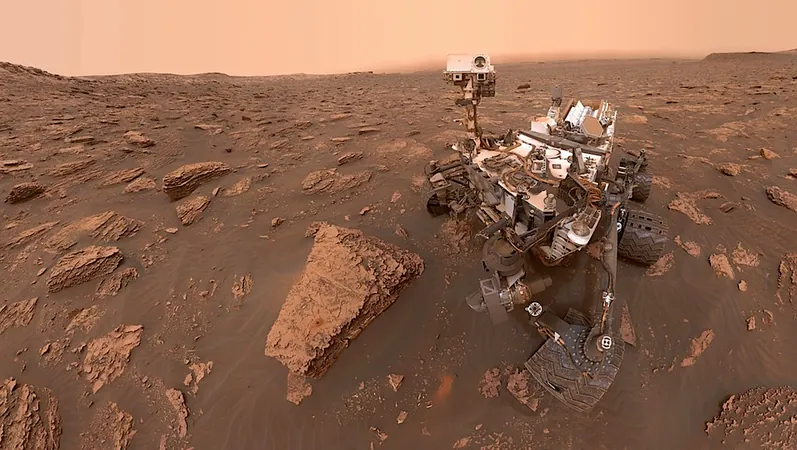
Enhancing Rover Mobility Monitoring: The Power of Autoencoders in Mars Exploration
2024-12-01
Author: Michael
The Mars Science Laboratory, on a remarkable journey for over eleven years, continues to play a crucial role in NASA's groundbreaking missions on the Red Planet. Ensuring the rover's continued operational efficacy is not just a priority but a necessity for the success of ongoing and future Mars exploration.
In a pioneering study, researchers have implemented undercomplete autoencoder models aimed at identifying anomalies in the rover's drive functionality. By harnessing telemetry data from essential components such as wheel actuators, the Rover Inertial Measurement Unit (RIMU), and the suspension system, this innovative approach represents a significant leap forward in post-drive data analysis during critical tactical downlink sessions.
The team examined a variety of model architectures and input features to ascertain their impact on performance. The robustness of these models was evaluated against previously unseen data, effectively simulating real-world conditions that the Curiosity rover faces during its tireless exploration tasks.
The findings from these experiments highlight the impressive capabilities of undercomplete autoencoders in detecting drive anomalies. Notably, the models were adept at uncovering subtle anomalies in telemetry data that even experienced human operators might overlook. This extraordinary sensitivity to minute irregularities not only enhances the monitoring of the rover but also provides a layer of early-stage failure detection that could prove invaluable.
Optimal design choices emerged from comparing various model architectures and input feature sets, demonstrating that the right configurations can lead to significant improvements in performance. This insight is crucial for enhancing the reliability and safety of future planetary exploration missions.
By enabling the early detection of anomalies, these advancements hold tremendous promise for the field of space exploration, potentially transforming how missions are conducted. As NASA continues to push the boundaries of scientific discovery on Mars, the integration of such intelligent systems could ensure that the next generation of rovers embarks on their journeys fully equipped for success. With innovation paving the way, the quest for knowledge on Mars is more thrilling than ever!
Stay tuned for updates as we continue to follow NASA's endeavors on Mars and the exciting developments in rover technology. What could this mean for the future of interplanetary exploration? The possibilities are endless!



 Brasil (PT)
Brasil (PT)
 Canada (EN)
Canada (EN)
 Chile (ES)
Chile (ES)
 Česko (CS)
Česko (CS)
 대한민국 (KO)
대한민국 (KO)
 España (ES)
España (ES)
 France (FR)
France (FR)
 Hong Kong (EN)
Hong Kong (EN)
 Italia (IT)
Italia (IT)
 日本 (JA)
日本 (JA)
 Magyarország (HU)
Magyarország (HU)
 Norge (NO)
Norge (NO)
 Polska (PL)
Polska (PL)
 Schweiz (DE)
Schweiz (DE)
 Singapore (EN)
Singapore (EN)
 Sverige (SV)
Sverige (SV)
 Suomi (FI)
Suomi (FI)
 Türkiye (TR)
Türkiye (TR)
 الإمارات العربية المتحدة (AR)
الإمارات العربية المتحدة (AR)